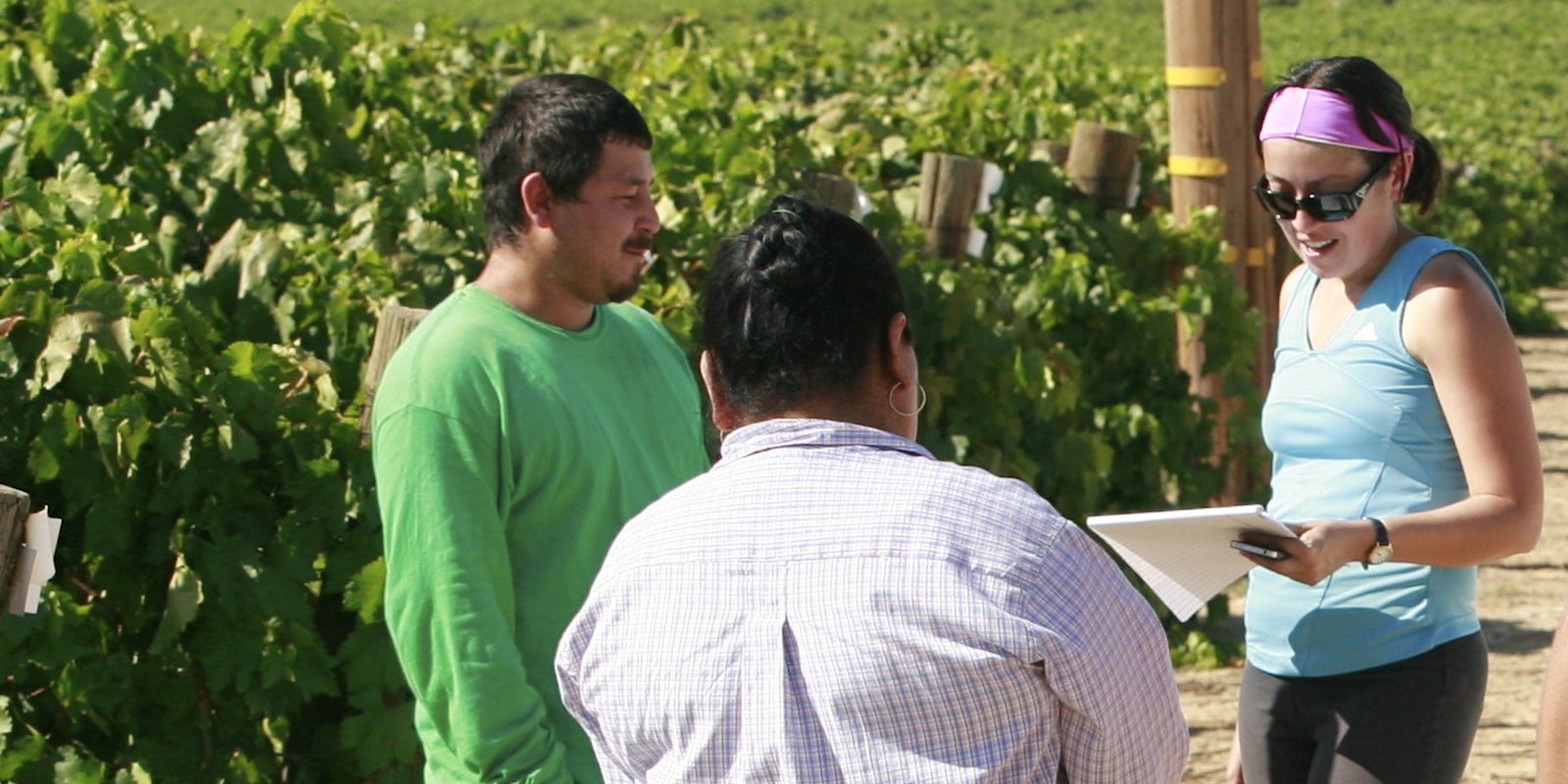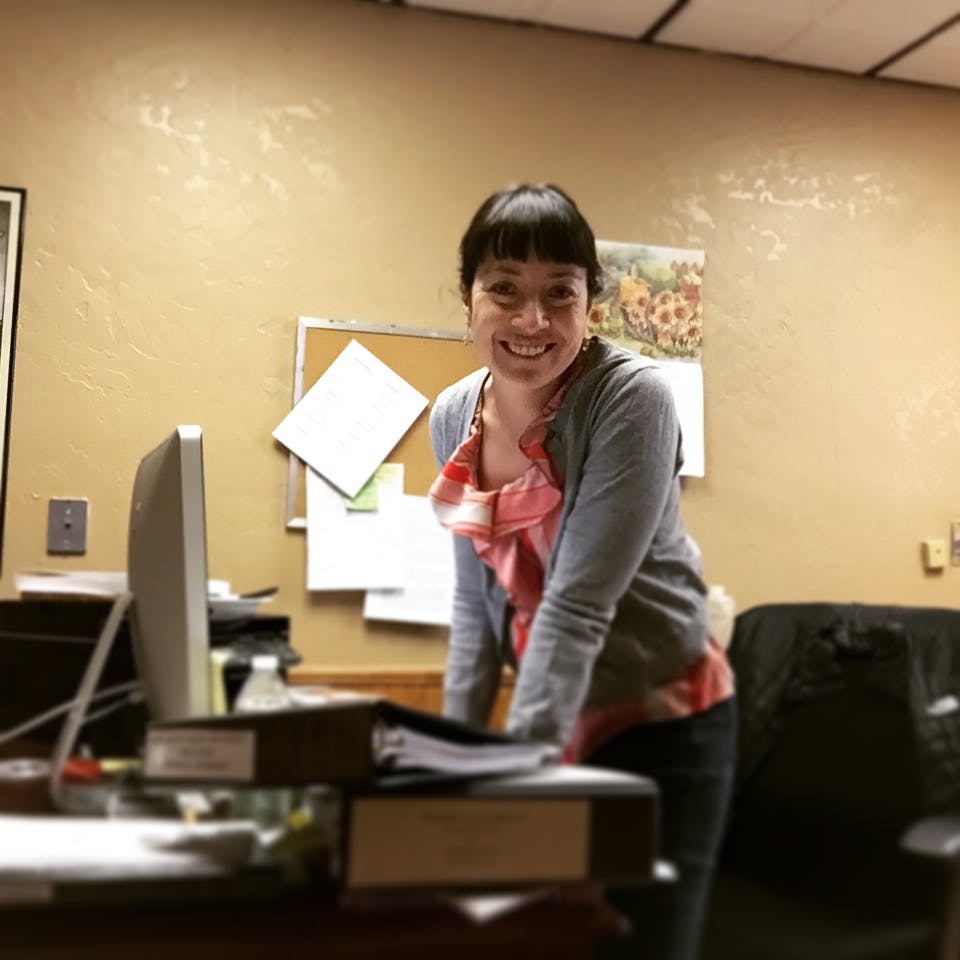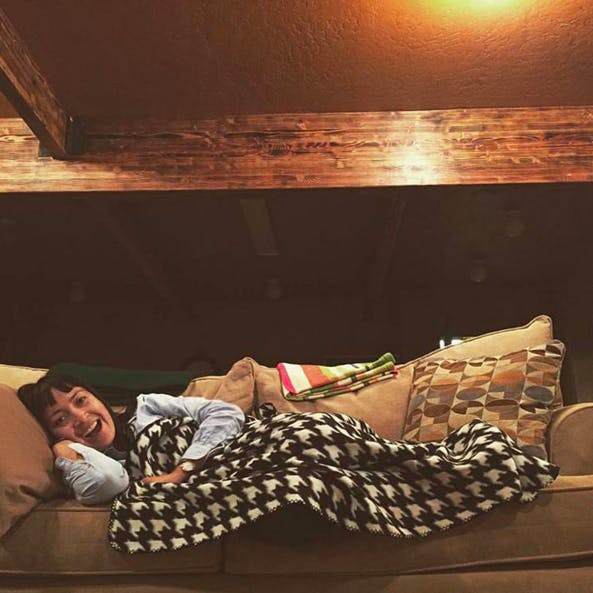Seven months ago, reality set in as Melanie Gleason stood in her empty apartment. She had just given away her last piece of furniture—her bed—a luxury she knew wouldn’t be guaranteed for the next few months. Owning nothing but a smart car, computer, and clothing, she knew there was no turning back.
These days, she wakes up on a new couch or bed or dorm every month. Sometimes she stays with friends. Sometimes she stays with complete strangers. Sometimes she sleeps in trailers infested with mice.
The 33-year-old took the plunge into a nomadic lifestyle to become a self-professed “attorney on the move,” taking on immigration cases pro bono across the country. She zeroes in on one destination, from middle-of-nowhere Montana to the desert surrounding the Navajo reservation in Arizona, and stays there for at least a month at a time “to really get a sense of what the community there is like.”
She left her apartment in Oakland, California, in July and has since tended to roughly 70 cases throughout seven destinations: Bakersfield, California; Portland, Oregon; Tacoma and Kent, Washington; Cut Bank, Montana; the aforementioned reservation; Tucson, Arizona; and New Mexico, where she is working with the Santa Fe Dreamers Project. Most of her time is spent in immigration detention centers, where hundreds of thousands of undocumented people—most without a criminal record—are held indefinitely because they are not granted the due process that American citizens receive upon incarceration.
“We all kind of live our lives and have our routine,” Gleason told the Daily Dot. “And it’s through that intentional getting out and really being able to see and experience someone else’s life, especially in these more isolated, marginalized places, that it just lends to greater understanding and empathy.”
But even those with a desire to connect with others aren’t necessarily compelled to give up all their possessions, salary, and their home to hit the road in pursuit of justice. Gleason attributes a “crockpot of ideas” that culminated during her years of working in social justice to the idea for “Attorney on the Move.”
Upon being sworn into the bar in June, she jumpstarted her journey by relying on a video she created and a crowdfunding campaign on Crowdrise, a site designed to raise money for charitable and personal causes.
https://www.youtube.com/watch?v=zYfqTFQzjNw
Gleason raised $10,000 in the first week of her campaign and another $6,000 in the last six months. She continues to live solely off that income, which was collected, she says, from 500 individuals and families. Although her crowd-based salary forces her to live a frugal, financially conscious life—budgeting out her food every week and living on office couches—she thrives on being funded by the public.
“It really feels like I’m working with and for this group of people and beyond, and the people they know,” Gleason said. “Even though it may not be this really exorbitant amount, there’s a lot of pride in working within four people,” meaning she has traced her donations through four levels of sharing—she shares her campaign to her social network, they share to their networks, and this process repeats.
The stories of the immigrants she works for—involving cases on everything from helping with housing eviction to assisting those seeking political asylum—aren’t easy to shrug off after the work day is done. Gleason reflects on them all the time. One particularly poignant case involving a Honduran woman she worked with in Tucson stands out.
This woman sold food in a stand on the streets of Honduras. A gang approached her demanding money as a “protection fee.” She refused to pay and they went on their way. The day after her birthday, the gang returned and burned down the business. Two weeks later the woman went out on the street to sell food. The gang found her, allegedly gang-raped and beat her, and left her for dead. She spent some of that night in the hospital, but left before dawn, scared they would come back to find her and finish what they started.
“It’s so overwhelming, both in the individual story that you’re hearing and the realization that there are huge systemic failures.”
It was then that the woman decided to flee. She had two children but could only bring one. She chose her son to protect him from the increasing street gang violence, where boys as young as 11 and 12 were participating.
The woman and her son made it to a short-term shelter for women and children in Tucson, which is located 70 miles from the U.S.-Mexico border in Nogales. The woman stayed for a little while, but Gleason later learned she returned back to Honduras on her own volition.
Reflecting on these realities poses psychological challenges for social justice attorneys. Gleason has suffered from secondary trauma, a form of stress that can occur when hearing first-hand the traumatic experiences of another.
“It’s so overwhelming, both in the individual story that you’re hearing and the realization that there are huge systemic failures,” Gleason said.
Gleason works for an all-inclusive public, citizens and undocumented people alike, as she links a majority of problems in the world—classism, racism, ableism, and homophobia among others—to immigration issues.
As a daughter of a Thai immigrant, Gleason vividly remembers growing up in Boston among the few people of color attending French-Canadian parochial schools throughout her childhood. In college at the University of Texas at Austin, she found herself becoming more involved in volunteer work, chairing the student volunteer board her junior year. She then took a job with Teach For America, where she worked for three years with inner-city youth in South Central Los Angeles as a middle school special education teacher. Working in this “de-facto segregated community,” she said, set the trajectory for the rest of her career in social justice.
“I just knew that there were other communities that I was so wanting to learn more about,” Gleason said. “Like I never knew anyone previously who had lived in a reservation and I had never known anyone who had lived in a detention center.”
She spent the next five years working and volunteering in urban and rural communities, eventually landing in the Golden Gate University School of Law, organizing by day and taking classes by night to become a public interest attorney. She knew this profession would give her the one-on-one time she craved with clients.
Immigration cases are particularly challenging, according to Elissa Steglich, a clinical professor for the University of Texas Immigration Clinic. The immigration system does not provide appointed counsel, even for individuals who find themselves facing deportation. With a dramatically expanding immigrant population—a 4.1 million population growth in the last four years, according to the Center for Immigration Studies—this community is facing a larger need for immigration attorneys.
“The immigration system, even though it lacks availability of counsel, is really not set up to be friendly to someone who is trying to do it on their own,” Steglich said.
This is primarily why immigration lawyers step in. These cases often require lots of paperwork, and knowing how to respond to questions on these seemingly basic forms increases the probability of success. Studies have shown having counsel can increase the likelihood of success by as much as 10 times, according to Steglich.
“There are a lot of pitfalls unless you have counsel who can understand what the application is even asking,” Steglich said.
https://www.youtube.com/watch?v=3YpcfkvJZHI
In December, Gleason kicked off her second crowdfunding campaign aimed to raise money for another ambition. After working in largely rural, inaccessible areas, she found people had to drive hours a day to be able to reach her services. And even worse, she found that people couldn’t take the time off to receive help.
To address this, she plans on opening a virtual law office, a practice that takes place by working with clients online and through phone calls. Virtual law offices exist, but what makes Gleason’s stand out is its public interest intent that she believes lacks in online offices.
“It was almost more nerve-racking the second time because I had been doing this for six months. How do I also extend and elevate this?” she said.
A little more than a month into the campaign, Gleason has raised just over $18,000, with a $20,000 goal.
What does that mean for her life on the road? Gleason is committed to being on the move through December, with eyes on Dilley and Karnes City, Texas, as her next destinations and her longest stay yet—three months. She’ll be working in the country’s largest detention center, which holds 2,000 immigrant women and children.
As for the future, Gleason needs to maintain one-on-one contact with clients and plans on keeping a travel element to her career despite the facility of the virtual law office. Her dream is to continue working in different areas in either detention and asylum immigration law within the country, and maybe internationally.
This month she’s staying at the Santa Fe Art Institute as the only lawyer in a sea of artists. She’s probably just had her umpteenth helping of eggs since she first began her journey. Today, Gleason sleeps comfortably in a bed in her own room. Tomorrow—who knows?
Correction: Gleason clarified that she was among the few people of color she knew growing up, and that she used Craigslist to give away, not sell, her possessions. Also, she was sworn into the bar in June.
Photo via Melanie Gleason




